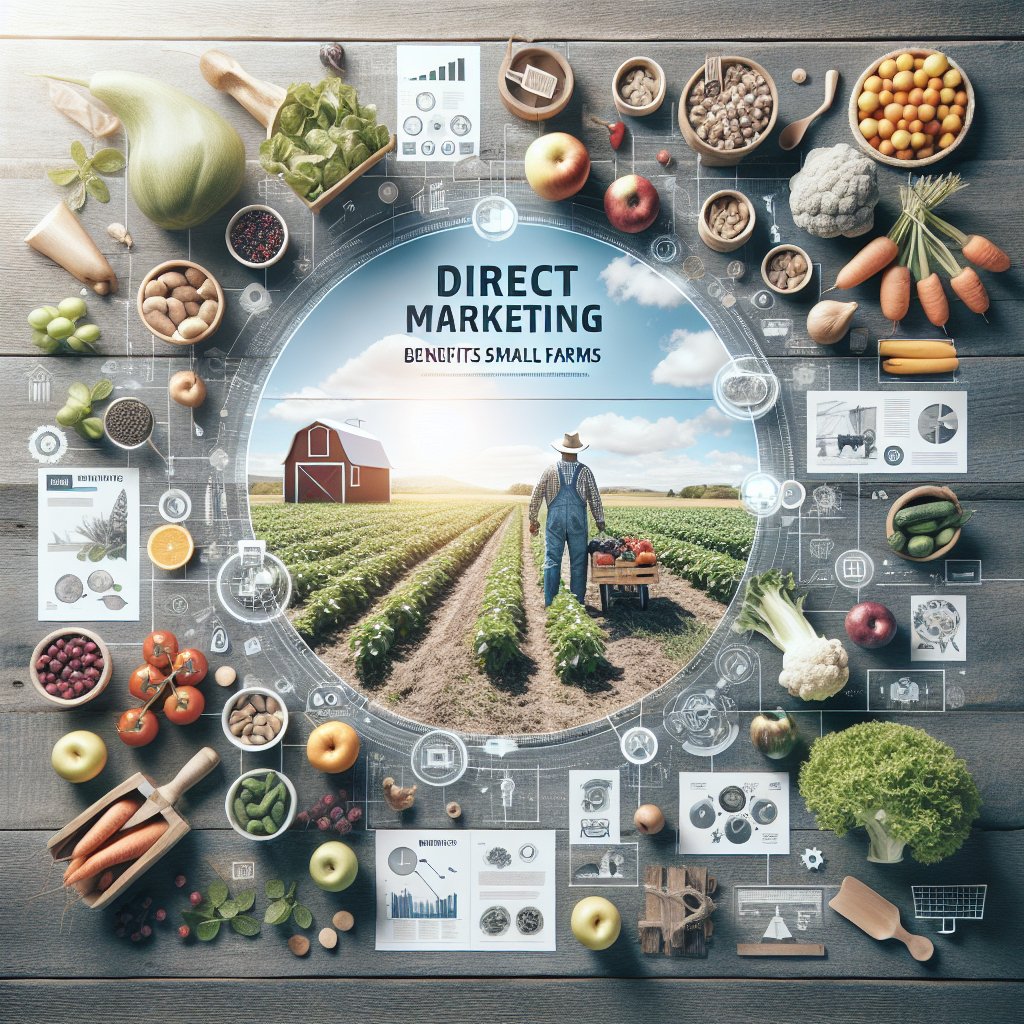
Direct marketing has emerged as a powerful tool for small farms, offering numerous benefits that can significantly enhance their sustainability and profitability. By bypassing traditional distribution channels and selling directly to consumers, small farms can establish stronger relationships with their customers, increase their profit margins, and gain greater control over their product offerings. This article explores the various advantages of direct marketing for small farms, highlighting how this approach can transform their operations and contribute to a more resilient agricultural sector.
Enhancing Profitability and Financial Stability
One of the most significant benefits of direct marketing for small farms is the potential for increased profitability. By selling directly to consumers, farmers can eliminate intermediaries such as wholesalers and retailers, which often take a substantial cut of the profits. This direct-to-consumer approach allows farmers to retain a larger share of the revenue generated from their products, leading to improved financial stability.
Moreover, direct marketing enables small farms to set their own prices, which can be particularly advantageous in niche markets where consumers are willing to pay a premium for high-quality, locally sourced, or organic products. This pricing flexibility allows farmers to better align their pricing strategies with their production costs and market demand, ultimately enhancing their bottom line.
Additionally, direct marketing can help small farms reduce waste and optimize their production processes. By engaging directly with consumers, farmers can gain valuable insights into customer preferences and demand patterns, allowing them to adjust their production accordingly. This demand-driven approach minimizes the risk of overproduction and reduces the likelihood of unsold inventory, further contributing to financial stability.
Building Stronger Customer Relationships
Another key advantage of direct marketing is the opportunity for small farms to build stronger, more personal relationships with their customers. By interacting directly with consumers, farmers can share their stories, educate customers about their farming practices, and foster a sense of community and trust. This personal connection can lead to increased customer loyalty and repeat business, which are crucial for the long-term success of small farms.
Direct marketing also allows farmers to receive immediate feedback from their customers, enabling them to quickly address any concerns or suggestions. This direct line of communication can help farmers improve their products and services, ensuring that they meet the evolving needs and preferences of their customer base. Furthermore, satisfied customers are more likely to recommend the farm to others, expanding the farm’s reach and customer base through word-of-mouth marketing.
In addition to fostering customer loyalty, direct marketing can also enhance a farm’s brand identity. By showcasing their unique values, practices, and products, small farms can differentiate themselves from larger, more industrialized competitors. This distinct brand identity can attract consumers who prioritize sustainability, local sourcing, and ethical production, further strengthening the farm’s market position.
Increasing Market Access and Diversification
Direct marketing provides small farms with increased access to diverse markets, allowing them to reach a broader range of consumers. Farmers’ markets, community-supported agriculture (CSA) programs, online sales platforms, and farm stands are just a few of the direct marketing channels that small farms can leverage to expand their reach. These channels offer farmers the flexibility to tailor their marketing strategies to different consumer segments, maximizing their market potential.
By diversifying their marketing channels, small farms can also reduce their reliance on any single market or customer base, mitigating the risks associated with market fluctuations and changing consumer preferences. This diversification can enhance the farm’s resilience and adaptability, ensuring its long-term viability in an ever-evolving agricultural landscape.
Furthermore, direct marketing can open up opportunities for small farms to collaborate with other local businesses and organizations. For example, farms can partner with local restaurants, schools, or food cooperatives to supply fresh produce, creating mutually beneficial relationships that support the local economy. These partnerships can also provide additional marketing exposure and credibility, further enhancing the farm’s reputation and market presence.
Empowering Farmers and Promoting Sustainability
Direct marketing empowers small farmers by giving them greater control over their production and marketing processes. This autonomy allows farmers to make decisions that align with their values and goals, such as prioritizing sustainable and environmentally friendly practices. By engaging directly with consumers, farmers can educate them about the benefits of sustainable agriculture, raising awareness and driving demand for eco-friendly products.
Moreover, direct marketing can contribute to the sustainability of small farms by promoting local food systems and reducing the environmental impact of food distribution. By selling locally, small farms can minimize the carbon footprint associated with transportation and storage, supporting a more sustainable and resilient food system. This local focus also strengthens community ties and encourages consumers to support local agriculture, fostering a sense of shared responsibility for the environment and local economy.
In conclusion, direct marketing offers a multitude of benefits for small farms, from enhancing profitability and financial stability to building stronger customer relationships and promoting sustainability. By embracing direct marketing strategies, small farms can position themselves for long-term success in a competitive and dynamic agricultural landscape. As consumers increasingly seek out local, sustainable, and ethically produced food, direct marketing will continue to play a crucial role in the growth and resilience of small farms.

